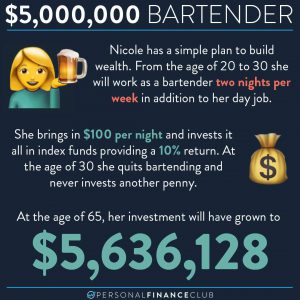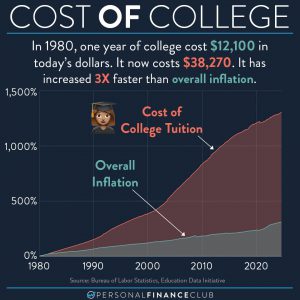
Most of you know I’m not a big fan of picking and choosing individual stocks. We can easily see which stocks did well in the past, so it leads us to a false sense of confidence that we can pick winners going forward. But in reality, we’re no more likely than random to pick stocks that outperform the market going forward. Doing so only serves to add volatility to our investments without adding expected higher returns. That’s not a good trade.
But there’s something even more damaging at work in this conversation. A “short term” mentality. People see the success of bitcoin, Tesla, Netflix, Amazon, etc and think they need to get in on the next one. Then when they make a small gain they think it’s time to get out. But those “overnight successes” have been around for a long time. Bitcoin, Tesla, Netflix and Amazon debuted 11, 10, 18, and 23 years ago respectively. Do you remember the people who bought them back then and sold it a month later? Me neither. There was no wealth to be built after just a month. “Overnight success” takes at least a decade.
I see this with index funds too. So many people are sad they missed out on the March low and afraid to get in at an “all time high”. But looking back in history, would you have liked to invest when we were at an all time high in June of 1985 (41.0X lower than where we are today)? How about September of 1985 (41.6X lower than where we are today)? Do you think it makes a big difference? It doesn’t. Get in now and get comfortable for the long haul.
A friend messaged me this morning asked when he should sell his new stock. I told him to stick it in an account and forget about it for 10 years. That’s how you get rich.
As always, reminding you to build wealth by following the two PFC rules: 1.) Live below your means and 2.) Invest early and often.
-Jeremy
p.s. is it “Me either” or “Me neither”? I used both in this post.
via Instagram

 September Sale!
September Sale! 



